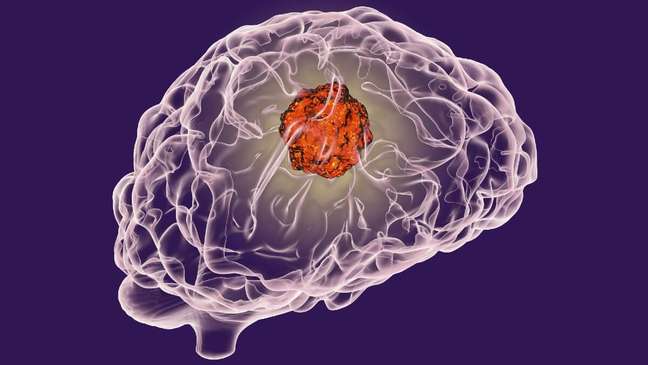A British woman discovered a brain tumor after having difficulty walking. The neurosurgeon describes the symptoms and treatment

British Lisa Robinson, 44, visited a dental clinic in Turkey and found out she had a brain tumor. Upon arriving at the office, Lisa worried the staff about her lack of balance to walk. The professionals canceled the procedure that needed to be done and insisted that she go to the hospital immediately. There, the woman underwent an MRI, which recorded a tumor and hemorrhage in the brain.
The dental clinic team did the right thing. “Any adult patient who has balance disorders is always a warning sign,” says Dr. Wanderley Cerqueira de Lima, neurologist and neurosurgeon at the Israelite Albert Einstein Hospital. The doctor explains that tests are done quickly to rule out brain injuries, such as tumors.
Symptoms
The neurosurgeon clarifies that the most common brain tumor is usually found in the region of the cerebellum, where the balance and coordination of the limbs are found. The staff of the dental clinic in Turkey even asked her Lisa if she had consumed alcohol, as she could barely stand up.
The doctor. Wanderley points out that imbalance is one of the main symptoms of brain damage. Also, another warning sign is difficulty speaking, called dysarthria. It is characterized by a confused language, in which the language does not articulate the words correctly, as the doctor explains.
The neurosurgeon adds that tumors can arise in other regions of the brain, affecting the contralateral force, that is, on the other side of the body. In these cases, the patient feels weakness. “So the change in balance is not due to a problem with the coordination of the cerebellum, but to weakness due to brain damage,” she adds.
According to the specialist, there are still other symptoms such as severe and constant headaches, as well as unexplained nausea and vomiting.
diagnosis and treatment
Any signs of imbalance or coordination problems should be seen as warning signs, as the neurosurgeon points out. An MRI scan of the head is essential for diagnosis, where the cause, location, size and appearance of the lesion are recognized.
“It is possible to find out if it is a lesion that is destroying part of a brain structure or cerebellum, or if it is leading to compression, causing other symptoms such as headache, nausea and vomiting. With the complementary examination in hand, the diagnosis will always be neurosurgical “, says Dr. Wanderley.
After diagnosis, treatment should be done with radiotherapy and / or chemotherapy. “Of course, there are some cases of tumors that only surgery can solve, but the follow-up must be progressive over at least five years,” she concludes.
Source: Terra
Benjamin Smith is a fashion journalist and author at Gossipify, known for his coverage of the latest fashion trends and industry insights. He writes about clothing, shoes, accessories, and runway shows, providing in-depth analysis and unique perspectives. He’s respected for his ability to spot emerging designers and trends, and for providing practical fashion advice to readers.







